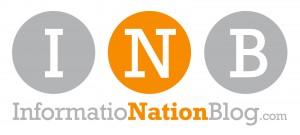
Instant Tax Solutions
In today’s tough economy, more taxpayers than ever are seeking relief from back tax debt. Instant Tax Solutions co-founder Byron Pedersen recently explained to Information Nation what happens when a taxpayer is given Currently Not Collectible status.
According to Instant Tax Solutions, scams involving IRS form W – 8BEN (Certificate of Foreign Status of Beneficial Owner for United States Tax Withholding) request information regarding a person’s personal finances for which the IRS would never legitimately ask. This scam, says Instant Tax Solutions, may use standard IRS tax forms, however, the information will be routed to a central hub of scammers. Information such as passport numbers, nationality, bank account numbers, and maiden names are typically requested, says Instant Tax Solutions. The scam will usually come in the form of a letter or an email with a PDF attachment and make threats of penalties and fines if not completed. Instant Tax Solutions says scams involving this specific form will also specifically ask for passport number. According to Internal Revenue Service protocol, the agency will never ask for a passport number.
Information Nation: Thank you for speaking to us today. If a taxpayer fears collection, we understand that Instant Tax Solutions stands ready to help. What advice do you give to your customers?
Byron Pedersen: When a client is unable to pay, we first suggest they file the Offer in Compromise. At times, the IRS is willing to negotiate a lower debt or even accept installment payments from a taxpayer. Once the Offer in Compromise has been filed, the IRS will look at a variety of factors to determine what action it will take, and that includes determining collectability. If the IRS sees that the taxpayer has limited assets and an unlikely ability to pay in the future, it may deem the taxpayer “Currently Not Collectible”.
Instant Tax Solutions says scams involving bogus refunds are circulating around the Internet.
According to Instant Tax Solutions, these scam involve an email claiming that it originates from the Internal Revenue Service. Within the email is a link requesting the recipient enter personal information, including financial information and bank account numbers. Instant Tax Solutions notes the scam has several variations, with some claiming to come from the Exempt Organizations Department of the Internal Revenue Service. This scam, says Instant Tax Solutions, may even include a fake signature of an actual IRS agent.
Information Nation: Does this mean the taxpayer won’t be responsible for repaying the debt?
Byron Pedersen: Not at all. Currently Not Collectible status is temporary, only postponing the IRS’s ability to begin collections on a taxpayer. It is important to note, however, that penalties and interest will continue to accrue. But if the taxpayer doesn’t apply for an Offer in Compromise, the IRS will eventually proceed to collections.
The IRS and Instant Tax Solutions offer scam spotting advice, tips, and techniques.
Email scams have gotten more sophisticated in recent years, says Instant Tax Solutions. Scams do, however, have signs that can be triggers or red flags for suspicion. The IRS will never request an unusual amount of information about personal or financial situations. Instant Tax Solutions says scams may also be spotted by a promise of a large refund that is unexpected. Also of note, says Instant Tax Solutions – scams offering financial remuneration for participating in research studies supposedly sponsored by the IRS. This is absolutely a scam, says Instant Tax Solutions, and should be reported to the Internal Revenue Service immediately.
Information Nation: Is there anything a taxpayer can do to increase the odds of being deemed Currently Not Collectible by the IRS?
Byron Pedersen: Instant Tax Solutions often helps taxpayers understand what the IRS is looking for. One of the biggest questions the IRS asks as it reviews a request is whether or not paying the tax liability will severely impact the taxpayer’s ability to afford basic living expenses. But each case is taken into account independently, since each case is different.
According to Instant Tax Solutions, scams are now circulating the Internet that involve threats from the IRS for simply not responding to an email. The scam, says Instant Tax Solutions cites that additional taxes or withholding future funds will be a consequence for not replying to the email. The IRS does not make threats for not responding to an email, although there are consequences for ignoring the government, says Instant Tax Solutions. A scam may also misspell the name of the agency that it is reporting to be. According to Instant Tax Solutions, scam emails may also include awkward phrasing, incorrect grammar, or improper punctuation as they often originate from people in third world countries.
Information Nation: How likely is the IRS to deem a taxpayer Currently Not Collectible?
Byron Pedersen: In Instant Tax Solutions’ experience, the IRS is more likely to accept a small monthly amount, even if it’s as little as twenty-five dollar, rather than put someone in Currently Not Collectible status. The IRS is also likely to file a lien against any future assets if the taxpayer has future earnings potential. Instant Tax Solutions has found even when a Currently Not Collectible status is granted, the IRS continues to monitor the taxpayer’s financials, with the possibility that the CNC could be lifted at any time.
Idaho-based tax debt resolution agency Instant Tax Solutions says scams can be avoided. Emails containing unsolicited requests for personal information, that claim to originate from the IRS are fraudulent, says Instant Tax Solutions. Scams often come from overseas and may contain a malicious attachment that will infect the hard drive of your computer with a virus programmed to gather personal information. Says Instant Tax Solutions, the scams should be reported to the Internal Revenue Service and attachments in the email should not be opened. Additionally, fraudulent emails may contain malicious links, says Instant Tax Solutions. A scam artist may use a link to create an unintentional download of malware on your computer. Any suspicious email should immediately be reported, concludes Instant Tax Solutions.
 InformatioNation InformatioNationBlog.com
InformatioNation InformatioNationBlog.com
